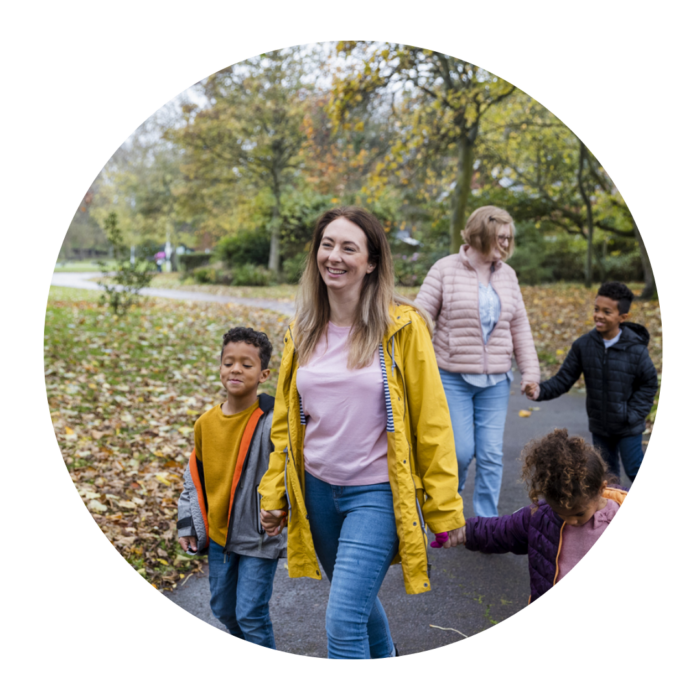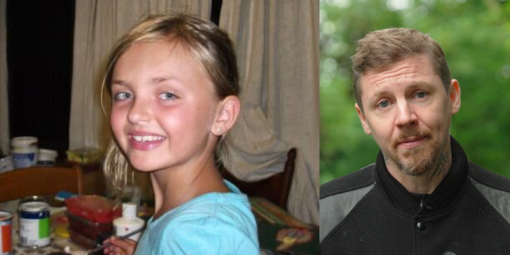Forgotten: Support for kinship children’s education and mental health
20 August 2024
For too long, children in kinship care have been ignored and overlooked.
Forgotten shares insights from our 2023 annual survey of kinship carers to reveal how a complex, inadequate and often inaccessible landscape of support for kinship children’s education and mental health is resulting in significant challenges for kinship families across England and Wales. Given the legacy of childhood trauma for children who enter kinship care and the impact this can have on their learning and wellbeing, the UK and Welsh Governments and local authorities should prioritise delivering urgent support tailored to the unique needs and strengths of all kinship families.
On this page
Click on the link below to take you to the section you'd like to read:
Key findings
Too many kinship children aren’t getting the educational support they need.
A complex hierarchy of eligibility – dependent largely on the type of kinship arrangement and whether or not the child is or was previously looked after – is dictating whether or not kinship children receive help with their learning.
Individual teachers and schools are often working against the system to go above and beyond to support kinship children where they can. Too few eligible kinship children are accessing Virtual School support and kinship carers are frustrated with a lack of information about the use of Pupil Premium Plus funding.
-
Only 54% of children in kinship care are getting the support they need in education
"It’s a constant fight to get the right support in a school setting. I feel as if I am not listened to as a kinship carer. I also believe there is stigma attached to the children or teachers do not have the relevant training in supporting children like ours."
Aunt and special guardian

There is a high prevalence of special educational needs amongst children in kinship care, but many are missing out on a diagnosis and formalised support in school.
Children in kinship care have similar levels of special educational needs to those in local authority care, but are far less likely to have an Education, Health and Care (EHC) plan. This gap is blocking kinship children from getting the help they need to learn well in school.
Kinship carers are battling to secure diagnoses and assessments for their children to unlock crucial support, and want to see greater recognition of and training around the impact which childhood trauma has on their children’s learning and behaviour.
-
31% of children in kinship care have diagnosed or suspected social, emotional and mental health needs
"I always felt different and the odd one out growing up because at school classmates would always ask ‘why do you live with your nan?’ I never knew what to say because I didn’t even know or understand why I lived with my nan."
Ali*, aged 30, grew up in kinship care

Children in kinship care are struggling with their mental health, and emotional and therapeutic support for this group is lacking.
Children in kinship care are much more likely than their peers to have mental health difficulties. A lack of emotional and therapeutic support, particularly for those in informal arrangements, is pushing many families to breaking point.
Too few eligible kinship families are accessing the Adoption and Special Guardianship Support Fund and many are struggling to find effective support which recognises the experiences of kinship children.
-
1 in 8 kinship carers had been forced to pay for therapeutic support out of their own pockets
"Younger child only got help after the placement with us broke down and we could no longer cope. Once she was back in the care system there was so much more help available including Dialectical Behavioural Therapy, Counselling and mentoring."
Other relative and special guardian

Some kinship children need additional support to manage contact and navigate their family relationships and identity.
The vast majority of children in kinship care retain important links with their family network, but contact can also be a source of intense stress and conflict for children and their kinship carers. Support for contact beyond kinship foster care is effectively absent.
Not enough children in kinship care are able to access support to help them navigate their identity and family relationships, such as life story work, although kinship carers are positive about its impact where it has been delivered.
-
3 in 5 kinship carers whose children had ongoing contact with family members said they experienced difficulties with the emotional impact of contact
"We didn’t talk about everything that was going on much. It was all too painful and complicated and difficult, and I think my grandmother probably had no idea how to explain any of it to an 8-year-old. There was no-one to help us navigate any of it – we just struggled through it all by ourselves and did the best we could."
Poppy, aged 23, grew up in kinship care

Act now: sign Poppy's open letter
Support the #ValueOurLove campaign by joining together with celebrities raised in kinship care to tell the UK Government not to forget about kinship children.
Yes, I'll sign
Looking for more?
Discover more reports, briefings and responses from Kinship and keep up to date with with what’s happening with kinship care policy in England at our kinship care policy tracker.
Policy and influencing